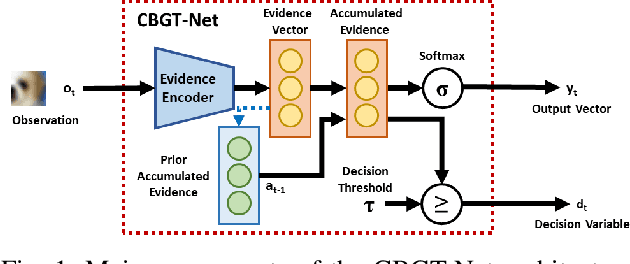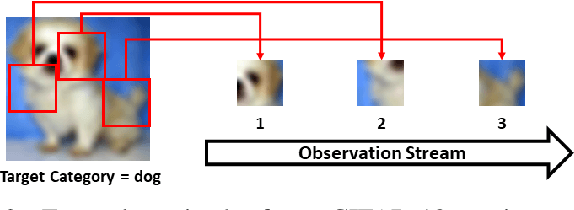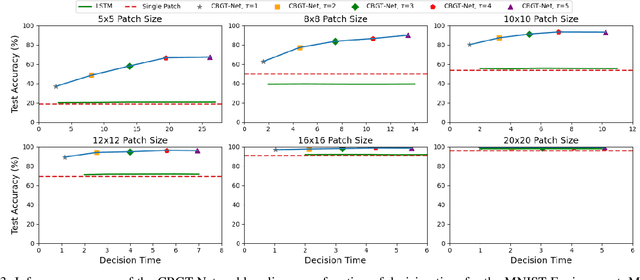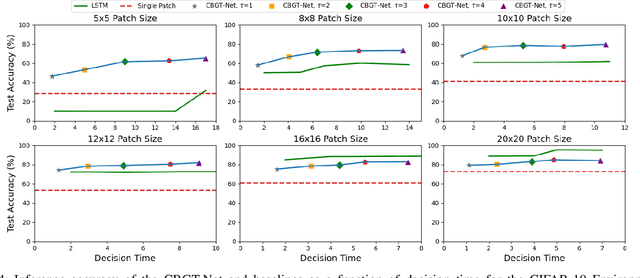CBGT-Net: A Neuromimetic Architecture for Robust Classification of Streaming Data
Paper and Code
Mar 24, 2024



This paper describes CBGT-Net, a neural network model inspired by the cortico-basal ganglia-thalamic (CBGT) circuits found in mammalian brains. Unlike traditional neural network models, which either generate an output for each provided input, or an output after a fixed sequence of inputs, the CBGT-Net learns to produce an output after a sufficient criteria for evidence is achieved from a stream of observed data. For each observation, the CBGT-Net generates a vector that explicitly represents the amount of evidence the observation provides for each potential decision, accumulates the evidence over time, and generates a decision when the accumulated evidence exceeds a pre-defined threshold. We evaluate the proposed model on two image classification tasks, where models need to predict image categories based on a stream of small patches extracted from the image. We show that the CBGT-Net provides improved accuracy and robustness compared to models trained to classify from a single patch, and models leveraging an LSTM layer to classify from a fixed sequence length of patches.
 Add to Chrome
Add to Chrome Add to Firefox
Add to Firefox Add to Edge
Add to Edge